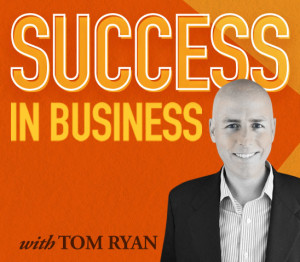 No matter what kind of company you build, sales should be a core business function. If there’s one mistake I see entrepreneurs consistently make, it’s giving the sales side of their companies the short end of the stick. As a result, the sales processes tend to be treated as afterthoughts, rather than top-level priorities.
No matter what kind of company you build, sales should be a core business function. If there’s one mistake I see entrepreneurs consistently make, it’s giving the sales side of their companies the short end of the stick. As a result, the sales processes tend to be treated as afterthoughts, rather than top-level priorities.
That’s always struck me as a strange attitude for an entrepreneur to have. After all, the most important thing for any growing business is traction, and there’s no faster way to grow traction than having truly professionalized sales process. When a company is “winging it” with their sales process, it shows. It’s only when a business develops a truly professionalized sales competency that the bulk of investors start to pay attention.
The tricky part for many entrepreneurs is lack of experience with a truly competent sales process. Even those with a background in sales might not know how a professional sales process works at the higher levels. And even when you do know how it works, implementing it can be a challenge.
Let’s examine the ten fundamental elements of a business with sales competency. This isn’t an in-depth guide, it’s just an overview to get you familiar with the core concepts.
- Value Proposition: How does your product or service make your customer’s life better? What should you say to prospective customers to make them want to buy? Your value proposition is your core message, the “why” of your business and the “how” your company can help solve your prospect’s problem.
- Customers: Do you know who your ideal customers are? If you don’t, you’re basically throwing spaghetti against the wall and seeing what sticks every time you meet with a prospect. There’s a limit to how effective your sales can be with that approach.
- Economics: How much are you willing to pay for sales? This is a huge topic with many moving parts, from your customer acquisition costs to your compensation model for your sales reps. As long as the profit from acquiring a new customer justifies the costs, you’re in the right ballpark.
- Activity: What are your core sales activities? What shape will your sales efforts take, and where will they be the most effective? These can be shaped by a huge variety of business-specific factors. Sales activities that work for a small artisan bakery probably won’t for a company that makes high-grade speciality farm equipment.
- Activity Management: How do you efficiently manage your sales activities? There are many conflicting views about the best way to manage sales, but they all share one thing in common: Even a great sales team requires professional management to deliver exceptional results.
- Channels: A “channel” is just a fancy way of saying “Places I can sell my stuff.” This includes everything from an ecommerce site to a retail storefront. Each channel requires a specific strategy to achieve optimal sales.
- Collateral: What do I need to support my sales efforts? At its most basic level, it includes things like business cards, sales materials and your website.
- Contracts: If you’re going to do business with someone else, you’ve got to have an agreement. What type of agreements and contracts do you need, and why?
- Team: As you build your company, you need to hire people to take on increasingly specialized tasks. The process is the same as you build a sales team. Finding the right people with the right talents is a huge part of creating a professional sales team.
- Training: Even the best salespeople need ongoing training. This goes beyond simply understanding the selling points of the product and having a solid script for cold calls. It’s an ongoing process of turning the talent you’ve recruited into rockstar sales reps.
The more you refine your sales process, personnel and resources, the better results you will start to see from your sales efforts. Instead of winging it, you’ll have a repeatable, scalable process for growing your customer base, closing deals and generating revenues.
Which of these should you focus on first? I’ll have to save that outline for another article.
